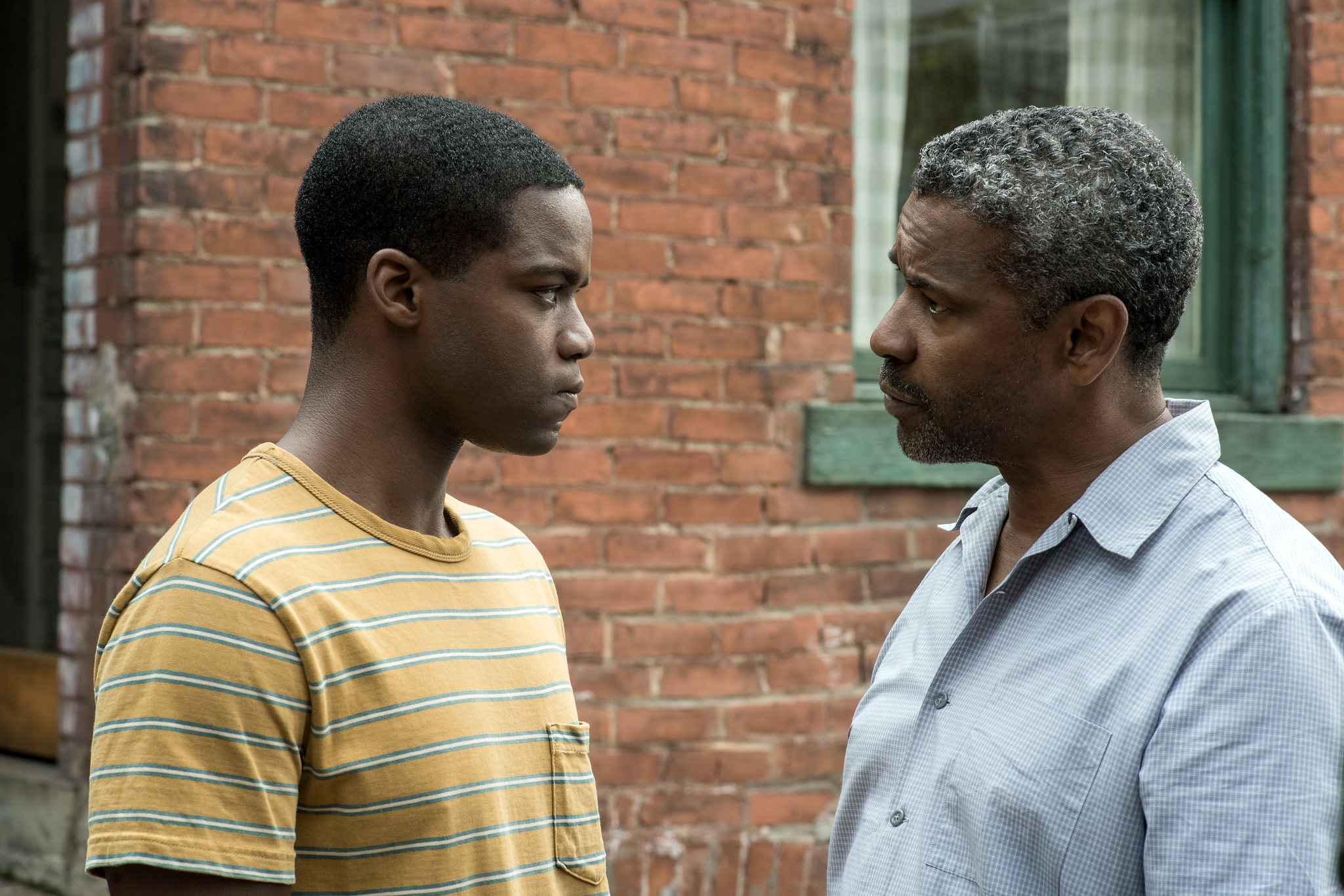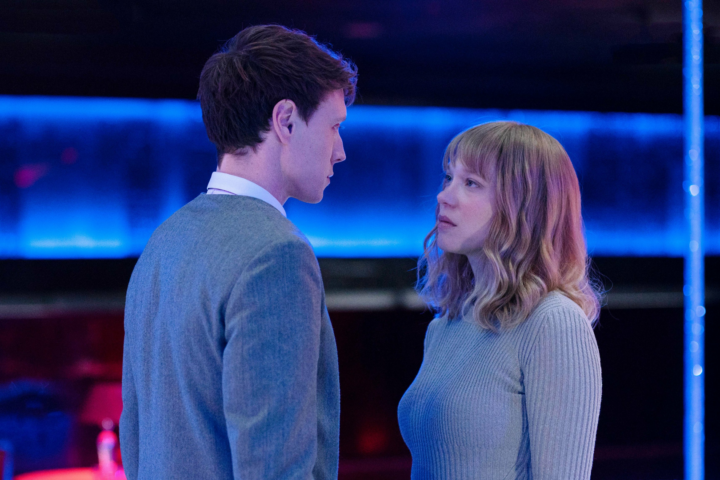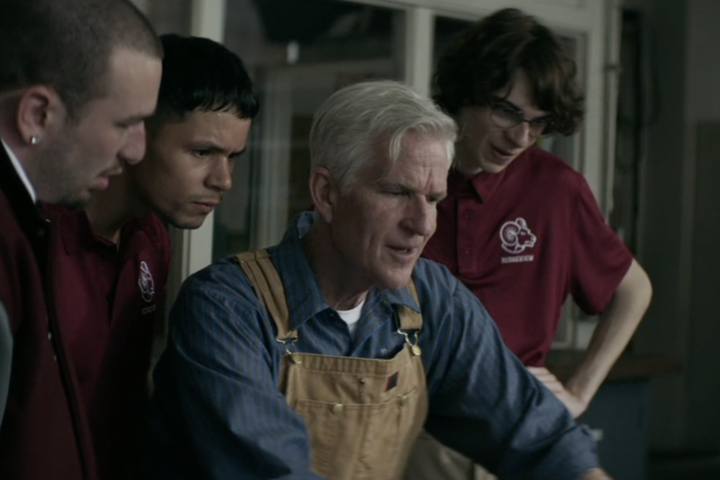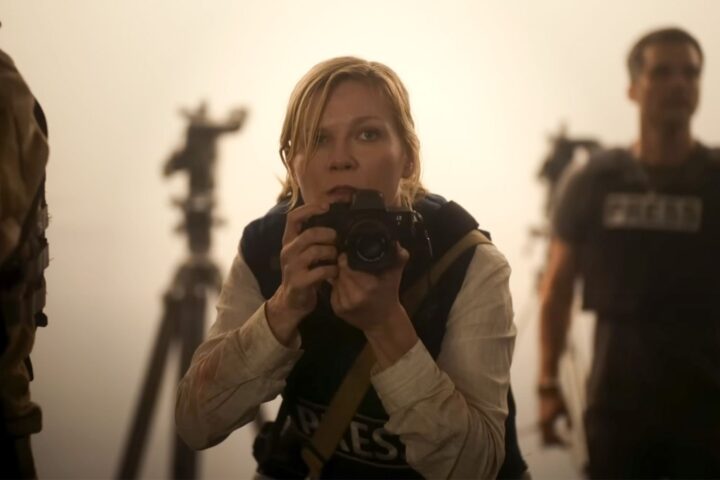Denzel Washington brings August Wilson’s celebrated Fences to the screen in a sum-of-its-parts movie adaptation both eloquent and long-winded, thematically expansive yet, at times, claustrophobic.
Working from a screenplay completed by Wilson prior to his 2005 death, Washington takes a traditional, almost reverential approach—perhaps too respectful—in letting the language dictate the directorial style, largely about the performances, minus the visual ingenuity and breathing room such densely written material requires in transition from stage to screen. Both Washington and co-star Viola Davis earned Tonys for the 2010 Broadway revival, and no firmer of a grasp on character will be found in any movie this year.
Washington is Troy Maxon, Pittsburgh trash collector circa 1957, working hard to provide for wife Rose (Davis) and teenage son Cory (newcomer Jovan Adepo) while wrestling with his own demons of failure, notably his unrealized dream of major league baseball which, according to best friend Bono (terrific Stephen McKinley Henderson) who knew Troy back in the Negro League, he more than had what it took. No matter than an African-American player at the time had no shot at the major leagues; this doesn’t save Troy from his deep-down regret. Years and disillusionments on, Troy—who can neither read nor possesses a drivers license—hopes to be the first African-American driver on the city’s sanitation circuit, which will finally bring some sense of accomplishment (and more money).
Daily routines consists of work followed by backyard drinking time, and this tiny yard is where much of Fences takes place, Troy regaling Bono and Rose with stories of youthful bravado, a masterful storyteller. Also in the mix is Troy’s adult son from an earlier marriage, Lyons (Russell Hornsby), who dreams of being a musician and frequently needs to borrow money.
Trouble ensues when their optimistic teenaged son, Cory (Adepo), begins courting a football scholarship, a pipe dream to Troy, so scarred by his own lack of professional sports opportunity (partly due to his age, also due to his race) that he all but nixes Cory’s own dream, a father-son conflict that escalates into Arthur Miller territory and which produces tension with Rose.
A key figure in all of this is Troy’s brother, Gabe (Mykelti Williamson), a World War II veteran now mentally unbalanced and whose government stipend is used by Troy to purchase the family home, where Gabe no longer resides, instead roaming the streets of the Sugar and frequently picked up as a vagrant.
Troy is hard at work on a fence surrounding the Maxon property, and he enlists Cory’s services as punishment for surreptitiously leaving his job at the local market to attend football practice. And the father-son conflict, as strong as any in American drama, is set in motion and driven by Troy’s fear of his own son’s failure as much as by his insecure need not to see his son succeed where he did not.
Wilson’s complex dialogue also spins innumerable stories from the past, and we learn of Troy’s adolescent flight from home, trouble with the law and stint in prison, as well as his long history of being a survivor, which he attributes to a challenge with death that left him victorious. He will challenge the fates again before Fences concludes, and be tested again by his wife, son and his own demons.
This is a lot of plot and exposition—and it’s all in the dialogue, in a tell rather than show treatment—but the performances largely sustain us, and Fences comes alive in the hands of its true hero, Rose, who graciously toils away doing the housework, managing the money, providing maternal love and support as well as the same to her husband—until a revelation collapses the family’s foundation, a line is crossed and no one’s lives can go back.
Davis, as always, is in a league of her own, all but delivering Fences in a one-two punch of knockout scenes—the first after a devastating confession from morally compromised Troy, and the second to her conflicted son in the film’s final moments. This is deep-down, buried in, Medea-level emoting, a masterful portrait of both strength and brokenness. The moment her Rose finally musters the courage to confront Troy with the famous “What about me? What about my life?” monologue, the picture becomes hers with fully-felt immediacy.
To my ear, Washington wore me out with a broadcast performance so large and dominating—as if still playing to the rear balcony of 48th Street’s Court Theatre—that I longed, and quickly, for a measure of subtlety the star has delivered in some of his best performances, like the troubled pilot in Flight or caring mentor in Antowne Fisher, which he also directed. While no one can say Washington isn’t fully immersed in a text clearly beloved to him, there is a high degree of Acting going on here, and the star sometimes feels on autopilot at times with a character he knows, and well, which can sap the spontaneity out of the interactions, particularly with Adepo, who feels reticent during a key confrontation.
Much of the time Fenc es feels stage-bound, including its slavish devotion to the central location of the Maxon home, perhaps the point as it functions like a prison for its inhabitants. Washington, who shot Fences with authenticity in the Hill District where Wilson set his Pulitzer winner, only rarely takes us to different locations—a bar, an alleyway, a street corner—and more of this setting would have helped the material breathe.
Fences is great material, but hardly a great movie of it. Still, you absolutely cannot miss Davis in this powerful performance, and as a filmed record of a great American drama, Fences is worthwhile.
3 stars.



